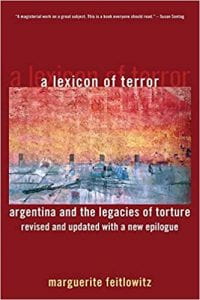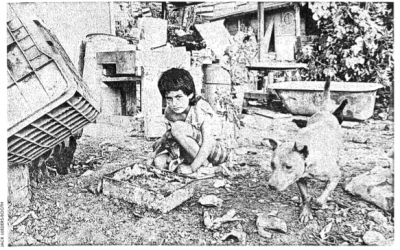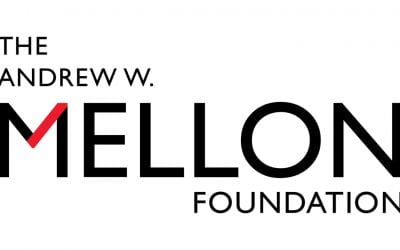A Review of A Lexicon of Terror
Argentina and the Legacy of Torture

A Lexicon of Terror: Argentina and the Legacy of Torture (Oxford University Press, New York, 1998) by Marguerite Feitlowitz
How can one narrate the unspeakable? The unimaginable, the horror? This question is always raised when one talks about testimonies and tales of holocausts. Both history and literary criticism have faced the theoretical and ethical challenge of representing that which cannot be represented: those horrors that have no words at all to “signify” them. More than thirty years after the terrors of Nazism, the dilemma is repeated with the South American dictatorships of the 1970s. The Argentine military dictatorship that devastated that country between 1976 and 1983 vividly actualizes the difficulties of narrating an understandable tale of horror.
This book by Marguerite Feitlowitz, Preceptor in Expository Writing at Harvard, explores a point that has seldom been examined in the analysis of this period; the way in which, precisely, language and terror were linked, the use of language to further terror and the legacy left by that vocabulary in testimonies and memory, the remnants of a new lexicon that gave different meanings to words and changed them forever. The perversion of language was one of the most subtle forms of terror. It operated in several ways: it left its victims without words, both during the time of censorship and afterwards, when to recall –to remember–was, and is, another form of torture that makes narrative impossible. But, in addition, and this perhaps has been the most perverse use of language, the military government imposed a verbal discourse in which words took on different meanings and buried other senses of the words, a tactic designed to cover up, obfuscate, and confuse. Language became a schizophrenic system in which each term could and should–if one wanted to preserve a bit of sanity–be read with opposite meanings. Moreover, an entirely “metaphoric” language, elaborated by the torturers, provided a vocabulary for the unnamable. Feitlowitz studies and analyzes this use of language as a means of making horror more “natural” and as a significant component in the construction of a supposed “normal reality.”
The investigation is made up of five chapters; the preface and introduction inform the reader about the way in which Feitlowitz developed her research and provides the historical-political context of the dictatorship. Both the preface and the introduction are valuable to two different types of audiences: Argentine readers, who know the facts, but will find a new focus in this text, and foreign readers who will find basic, but not banal, information with which to orient themselves.
Each of the chapters concentrates on some aspect in which this relationship between terror and language is manifested in this military regime, “Brutal, sadistic, and rapacious, the whole regime was intensely verbal. From the moment of the coup, there was a constant torrent of speeches, proclamations, and interviews; even certain military memos were made public.” (p. 17). Based on her investigations and on extensive interviews with survivors and family members of the disappeared, the author reconstructs the “lexicon of terror” as expressed in slogans, magazines, propaganda, and daily language. The second chapter, “Night and Fog”, focuses on the world of the concentration camps and its communication codes. The next chapters discuss forms of terror suffered by the Argentine Jewish community, the peasants, and the society at large (divided into those who survived the daily horror and those who “didn’t know anything”). This work–which provides outstanding documentation–concludes with a chapter about the “Scilingo Effect”: the impact of the words of a repentant torturer who in 1995 publicly confessed on television about his participation in death flights. His confession provoked a return of that which had been repressed in Argentine society now confronted with the other face–the explicit–of the lexicon of terror.
Feitlowitz’ book is particularly important because it focuses on an aspect of the dictatorship that has barely been examined, and it does so with seriousness and rigor. But, moreover, it is important because this aspect–the perverse use of language–allows one to glimpse the daily horror, made banal, in which the Argentine populace lived for almost a decade. It was this instrumentalization of language that covered up a “perfect” mechanism for murder. Finally, this book which analyzes the power of the word, the perverse force that words acquired in the hands of state terrorism, arrives on the scene to powerfully incorporate its word with all the other discourses that have been struggling in the last years to eliminate the forgetting, the silence, the amnesia, that those in power would yet once again impose on this history of horror, this legacy of death.
Spring 1998
Ana Maria Amar Sánchez is Associate Professor of Romance Languages and Literatures at Harvard University.
Related Articles
The Social Agenda in Latin America
If the 1980s were the era of economic policy reform in Latin America, the 1990s have become the era of social sector reform. Indeed, a consensus is now forming that delivery of health care…
A Mellon Update
More than 23 Latin American archives and libraries from Mexico to Rio de Janeiro have received grants from the Andrew W. Mellon Foundation to upgrade or preserve their facilities. The…
From Havana to HUD
Kennedy School Assistant Professor Xavier de Souza Briggs, who took a group of 17 graduate public policy students on a one-week study tour of Cuba last year, has now embarked on…




